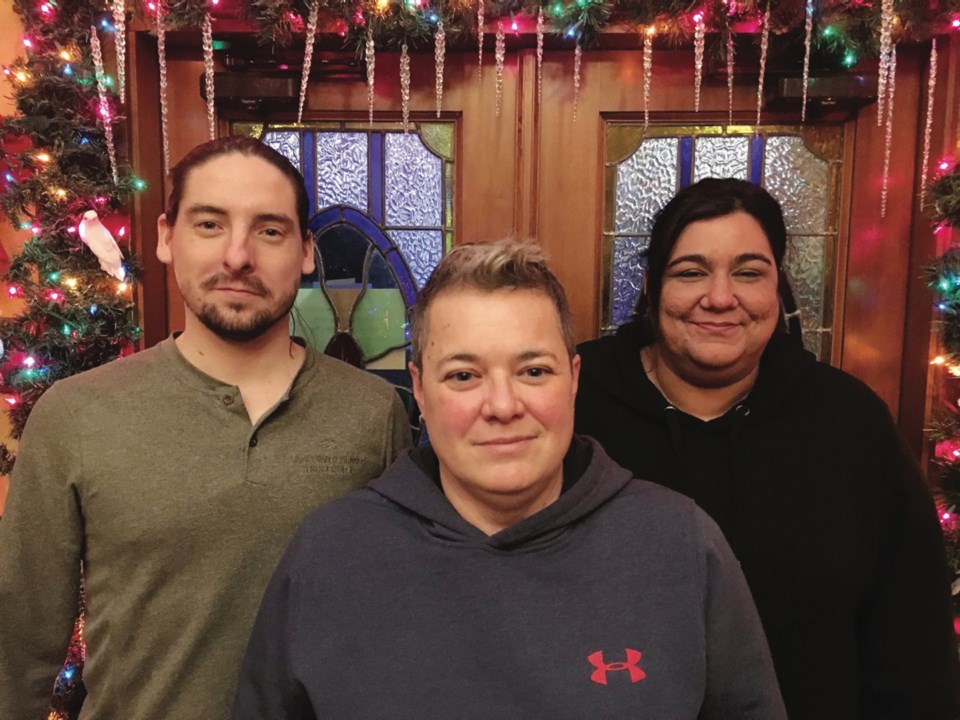So often, we hear the words reconciliation and decolonization, and lately I have been wondering if people really understand their meanings. The more I read, learn and listen, the more important these words become to me.
I am a product of the Sixties Scoop and was adopted and raised by a non-Indigenous family. Being adopted and having no knowledge of or connection to my birth family growing up, I really held onto being Indigenous. It was the only thing that I ever knew about myself for sure.
Because I wasn’t raised in Indigenous culture, I have often wondered if I am Indigenous enough. This is especially heightened because I am half. I am very open about my heritage and my adoption, but I do struggle saying: “My family is from Fort Chipewyan and I have Inuit roots.” I’ve never set foot on my ancestors’ traditional territory.
Through conversations with many other Indigenous people, I have learned that questioning: “Am I Indigenous enough?” is common among urban Indigenous people. I have come to terms with the fact that I wasn’t raised with culture due to colonization, and the more I question my relevance the more I begin to understand that my experience and others’ similar ones are all unfortunately very Indigenous experiences in our country.
Riley McKenzie is Mohawk and, like me, is a product of the Sixties Scoop. She learned she was adopted as a child, then at 21 she learned she was Indigenous, when one of her family members let it slip. It was during that period that McKenzie was not only learning to accept her heritage, but also her sexuality. She had elders explain an Indigenous view of the LGBTQ community and the gift of being two-spirited. This helped her accept herself and her place in life.
“I can visually pass as a non-Indigenous person, and I recognize my privilege,” said McKenzie. “It took me a while to get to the place where I could say I am an Indigenous person. Assimilation worked really well.”
McKenzie has spent time learning from elders and Indigenous knowledge-keepers in Alberta and in British Columbia. Recently, she has signed up to take distance-learning courses to learn her traditional language.
“I just signed up for Mohawk language classes and I am so excited to connect with my language and my culture,” said McKenzie.
“It’s part of who I am.”
Devan Cronshaw is from Winnipeg and moved to Vancouver Island for university. He didn’t know he was Métis from Red River until he was 18 years old.
“We hear about reconciliation and to really take it to heart has been more powerful than I could have thought,” said Cronshaw.
After university, Cronshaw started working for an Indigenous organization, and the experience has helped him connect with his own cultural roots more than he expected it would.
“There is no one way to be Indigenous,” said Cronshaw, who isn’t always comfortable identifying as Indigenous. “That was the plan with colonization all along. They wanted Indigenous people to feel disconnected. It’s not a mistake people feel this way. Colonization has affected everything about all of us.”
Growing up, Alita Tocher’s family made some passing comments about having Indigenous heritage, but nothing was confirmed until she was 15 years old and learned she is from Tsilhqot’in Nation.
“My grandmother went to residential school in Williams Lake and she was able to escape and ran away to Vancouver. To protect her family, she always told us that we were Spanish,” said Tocher.
When Tocher moved to Williams Lake as an adult, many Indigenous cousins introduced themselves to her and she said it was then she wondered if she would be accepted because she was raised outside of the culture. Her family members were very welcoming to her and she acknowledges that the struggle was only within herself.
“I am Indigenous, and I am Scottish and Norwegian,” Tocher said. “When I tell people that I am Scottish they look at me in disbelief. Sometimes I wonder: What right do I have to say I am Indigenous?”
It doesn’t matter how dark or fair someone’s skin is or if they grew up in a family that struggled or one of privilege. There is no such thing as being Indigenous enough.
Regardless of where an Indigenous person was raised or what they know about their culture, they are all still Indigenous people. The disconnect is a product of our history and should be viewed accordingly.
Charla Huber works in communications and Indigenous relations for M’akola Group of Societies.



